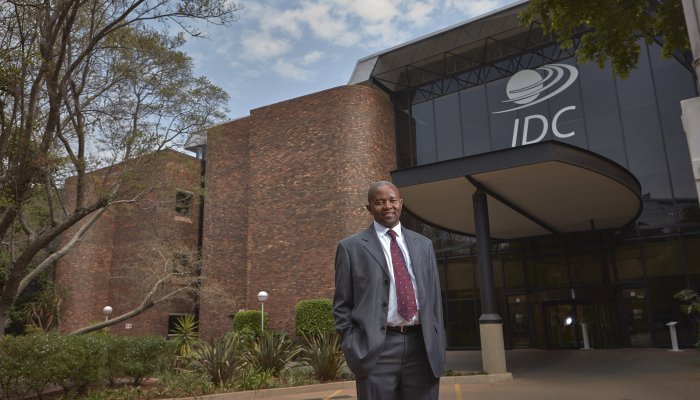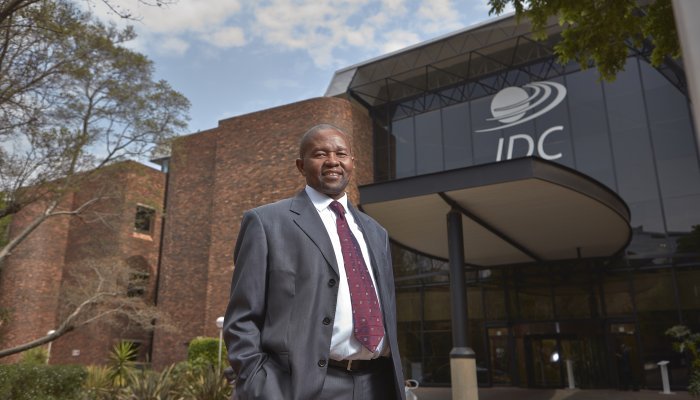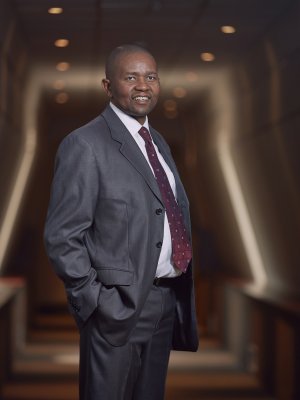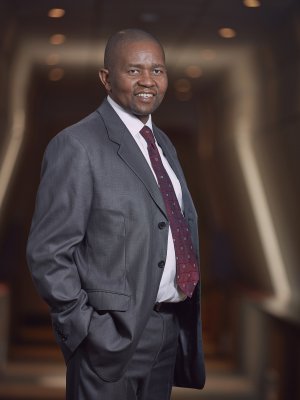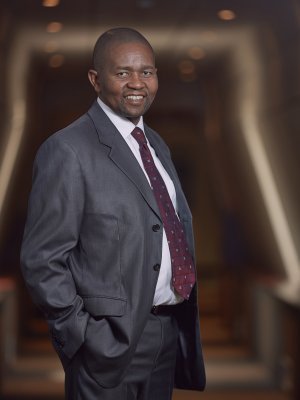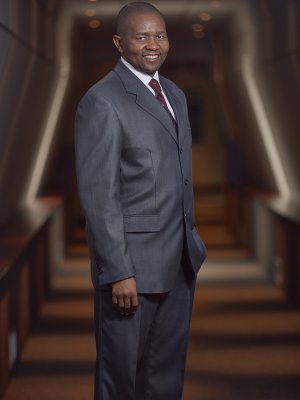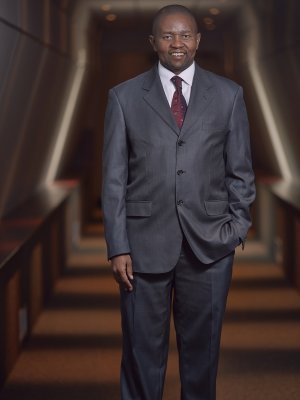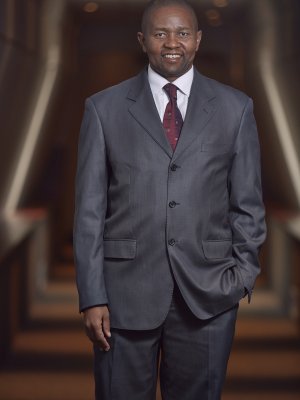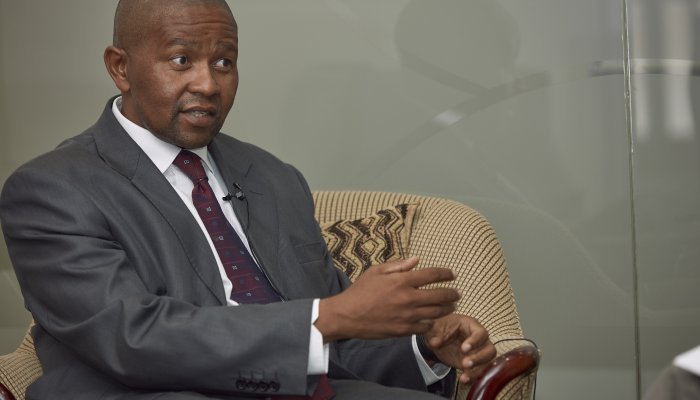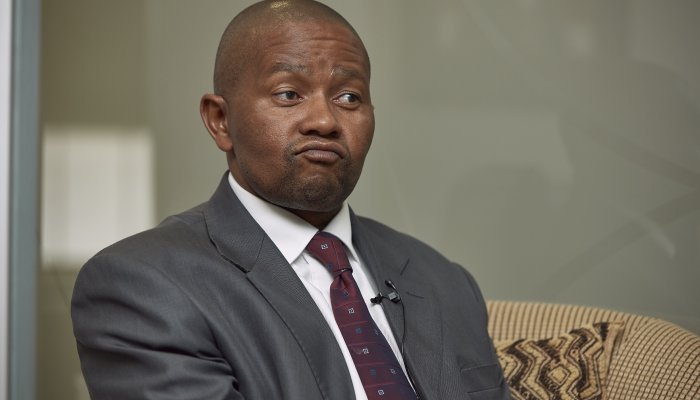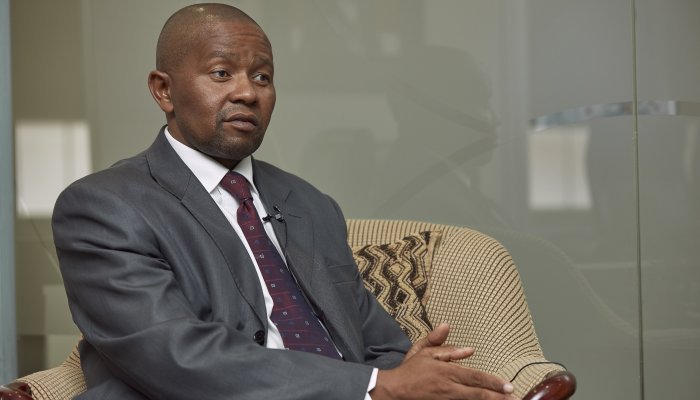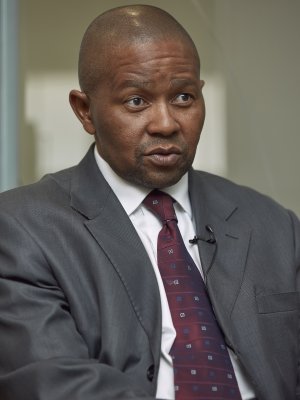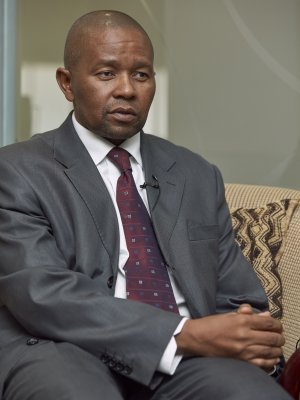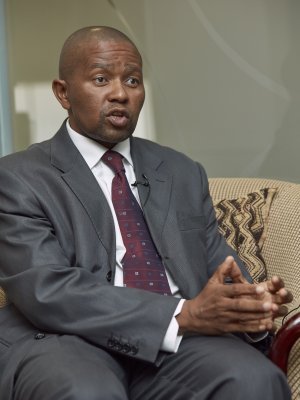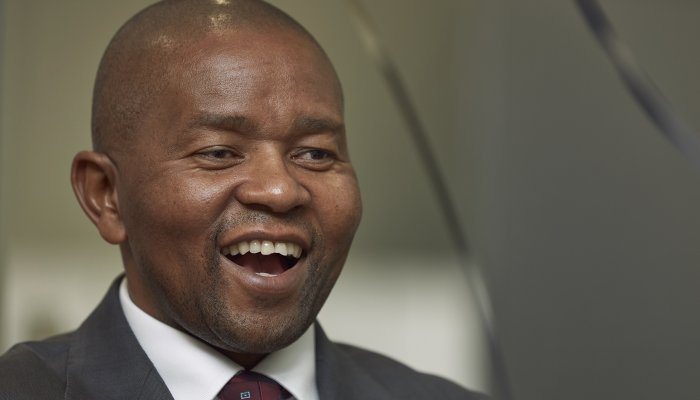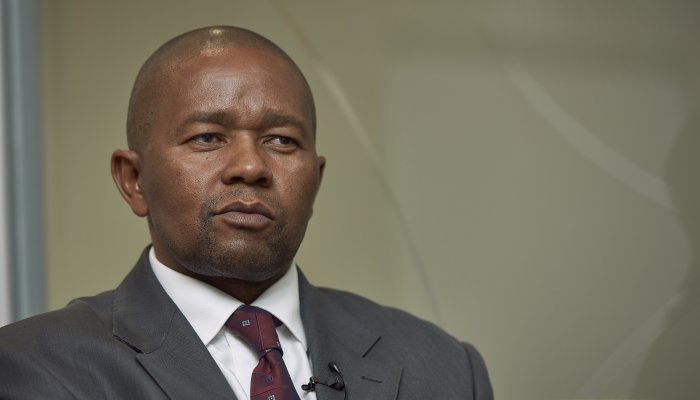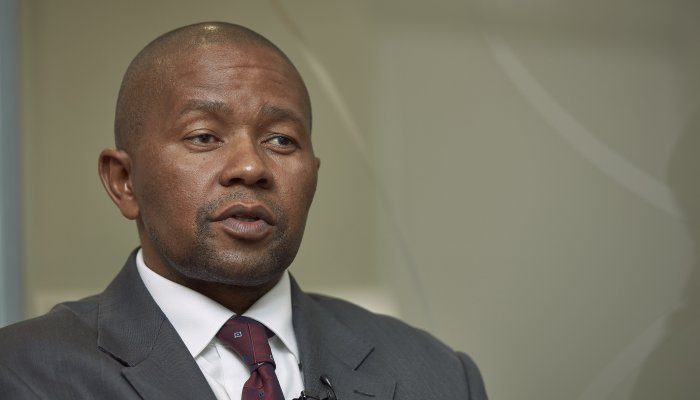The IDC funds viable businesses within key sectors of the economy in order to stimulate the country’s growth. These include both start-ups and/or expansions. In addition, we also fund entrepreneurs who want to buy into existing businesses. However, we do it differently as a development finance institution. We place emphasis on economic merit in terms of profitability and sustainability as opposed to relying solely on collateral and/or the existing balance sheet. We also assist companies in distress.
Why this isn’t left to the banks?
The key difference is the extent of risk we are prepared to take. Banks ordinarily would rely largely on collateral, or security and historical performance. So they look at your business: if you’ve got sufficient collateral, chances are you are covered. Whereas with us, we look largely at the sustainability of the business. Also we come into the business much earlier. Particularly new ones. Even when some companies experience difficulties we come in to help them turn around. So it’s the level of risk appetite and long term partnership approach we take, that’s the key difference.
Could we characterise this a form of state intervention, a state subsidy in the marketplace?
It depends. If we use intervention positively then it is, because we’re owned by the South African government. This is how the state helps stimulate the economy in areas where commercial funders would not ordinarily be able to participate.
So doesn’t that imply additional cost to the taxpayer?
Well, in IDC’s case, if you look at whether we go back to the state for funding - no. If you then asked, couldn’t the state have used that money for something else, I would come back and say that for those people who would have been unemployed except for our intervention, the state would have to cater for them one way or the other, in terms of the UIF or similar. So to me, it is not a cost. In fact, it’s an investment by the state.
Another criticism of state intervention, and also of broader industrial policy, is that it involves picking winners and losers. Do you agree?
We have sectors in which we operate, so if you just look at the IDC in isolation, we will be doing certain sectors. But also look at how we link with government’s policies, like industrialisation. So there would be sectors which as a country we’re good at, which we need to support. We know their impact, either in terms of job creation, or in terms of them being able to attract foreign direct investments and increasing job creation potential.
An example: the IDC has backed South Africa’s fledgling film industry, with some success. But why not similar industries like local TV production, or performing arts like theatre and ballet. How do you make that kind of decision?
The IDC’s founding legislation specifies that our interventions should be in those industries where there’s economic merit. That is where there’s an opportunity for the business to be both profitable and sustainable. The investment needs to be sustainable so that it creates jobs that last beyond the funding period. If you look at the film and TV industry, we do support those, but when it comes to other segments of the creative industries, such as theatre and the like, these are areas that rely largely on government grants or other non-profit organisations. In those instances, we say, let them be supported by grants, because they would not necessarily be sustainable on their own. And because we go out and raise funding externally, we need to be comfortable that the ones that we lend to have the ability to service our facilities..
The IDC has been heavily involved in investment in the mining sector. Why? Surely this is a sector that is big enough and ugly enough to look after itself?
Firstly, we will not necessarily fund every player in all the sectors that we cover. But even in those big enough, like mining, you want to encourage new players to enter the industry. So you need somebody with a long term view who will be able to ride the commodity cycle with you.. In fact, what we’re also doing is ensuring that there is an element of value addition and beneficiation as part of the investment. Also, we know that the mining sector goes through cycles, it is commodity based. We also know that mining still contributes in terms of job creation.
How has the organisation evolved post 1994?
Where IDC has played a role post ’94, particularly referring to transformation is to say how do we bring black entrepreneurs into the economy? We’ve been instrumental in that. We also brought in new industries like tourism. Investment in the tourism sector was very minimal at that stage because industry was only defined as manufacturing. Another new industry is renewable energy, which has picked up very well. If I look at the growth of the IDC’s activities over the last three years, it has been in the renewable energy sector.
What are the other major success stories for the IDC of the last 20 years?
Investing outside of South Africa. Previously the IDC was only in South Africa. But looking into the rest of the continent, we’ve had numerous projects, some in manufacturing, others in energy. We know energy and infrastructure are what the continent needs. We also know that South Africa’s economy on its own is relatively modest, and as we support some of these companies, we want them to be able to grow and then find other markets. So, going into the rest of the continent is also one of those successes.
What about failures, there must have been one or two? Nobody backs every winner in every race?
We have had failures. If you are in a financing space you would also have those. I recall we…as we take early stage positions…we backed an electric car. I was impressed, I drove the thing, but we had to write off the investment because I think we were just too early. Nor did we have the backing of strong partners. So that was one failure that stood out.
Your own personal business philosophy and background, how do those inform the IDC’s decision making process?
I grew up in a township, where, difficult as it was, you found entrepreneurs, people who produced things, manufactured things, people who were passionate. So I like to back people who are passionate about what they want to do. I believe if you’re passionate you don’t spend any nights without finding solutions. You know you put everything you have there. So it gives me comfort as a funder to say if things don’t work out you would have given it your best. I always say to people that if the funder is more worried than the entrepreneur then there's a big problem. So that’s what drives me. So if we have people who are committed, that also informs this issue of black industrialists. For me it’s the commitment and the passion that people display. Then we would fund it. We know some of them would work and some simply won't.
The IDC provided countercyclical finance during the 2008/2009 financial crisis. Did it help?
It did. Although there were successes and failures. In some instances we looked at our own clients but we also looked at clients which were sick but were not ours, and we absorbed them. An example which I’m not sure people know about is the Ford Ranger. You’d recall when Ford was also having problems not just here in South Africa but also in the US? The IDC invested approximately a billion rand to assist the company with the refurbishment of the production facility in South Africa, and that decision resulted in SA retaining the OEM and the Ford Ranger was manufactured in the country. Another example is a company called Bell Equipment, which is probably the only yellow OEM in South Africa, which went through challenges. We came in, we helped it, it’s still around, and it is increasing its exports as we speak. We have also had others which we tried to save but it didn’t work.
One of the IDC’s key mandates is to back labour intensive industries. Isn’t that also countercyclical, given the way many other parts of the world are shifting to robots and mechanisation?
If you look at it narrowly, you would say yes. But we know there are industries where labour will still be required.. Look at textiles: you can modernise, you can bring in some aspects of ensuring that you are innovative and competitive, but at the same time you can also continue to ensure that employment is sustained. Our reality is that unemployment is high in South Africa, currently at 26.6%. This is unsustainable, so there needs to be a bias towards supporting job intensive sectors.
From a governance perspective, how do you keep the IDC honest? No doubt you come under pressure from all sorts of quarters to back this or that special project?
You’re right, when you’re dealing with money you have to be honest. First we have an independent board. Although it’s approved by Cabinet, it’s independent. That board is made up of entrepreneurs themselves, or business people that sit on other boards, that help us. We have processes in terms of what we approve. We certainly don’t have a case where just one person approves a facility. The issue is not only one of inappropriate influence but you might just like the project and think it’s the best thing you’ve seen. So in some of our credit committees we have external people, who don’t work at the IDC, to advise us. But also to keep us honest, we have a hotline for whistle-blowers. They can contact the hotline, which is administered by a reputable audit firm, and if we have to follow up we will. We also have to report to Parliament at the beginning, what we’re planning to do, and at the end, what we’ve done. In that interaction, with all the political parties, there is robust debate so that we can ensure that we indeed perform as anticipated.
On the subject of governance, what about Futuregrowth’s decision to stop lending to the IDC and certain other SOEs?
Well, in fact we’re engaging with Futuregrowth. For me, what was dissapointing was that the engagement did not happen before the pronouncement They are one of our key funders and they have participated in our processes, in our public bond issuances. Our processes have not changed. If there are issues that they’re worried about, it will be obvious when we engage with them. We’re rated as an entity as well, so it is important that our governance is up to scratch. We have borrowings of over R27 billion and some of that is from international players, some from local players, and if you don’t get your governance in place, then you won’t be able to access that. So it is important. The relationship we’ve had with Futuregrowth has been a good one. I think we’ll be able to find each other.
Following Futuregrowth, Moody’s has put the IDC on review for a possible ratings downgrade?
Reading Moody’s statement, it’s really linked to Futuregrowth, because they refer to ‘other funders withdrawing their facilities’. In our case there is only one that’s done that: Futuregrowth. We’ve engaged with our other funders, and there is no indication that they’re uncomfortable with anything. Naturally, we are going to engage with Moody’s, too. In fact, just before we issued our results we engaged with them, so they know what our process is. I suppose as a rating agency also they would be worried to hear that some of our funders were uncomfortable. But I also feel maybe…they’re within their rights to do the review…but I would have hoped that they would have engaged with us first and then only issued their review warning. We’re playing open cards because we need to continue to go out into the market to raise funding, and the fact that we are rated gives the other funders, particularly the international ones, some comfort.
Lastly, how do you see key challenges for IDC going forward?
The key challenge is how quickly the economy recovers. Not only in South Africa, but Europe. As you know, South Africa trades its manufactured goods mainly with Europe. Recovery has also to happen in the rest of Africa, since we've also see some slow down following China's re-prioritisation of its growth drivers. This is vital since regional integration is one of our key strategies. There’s been some recovery but not enough, because some of the companies that we fund export to Europe. So if recovery does not happen quick enough, we would see some of the entrepreneurs we would want to partner with pulling back a bit. Globally, if the economy is not recovering quickly enough, it will have a direct impact on us. Also this level of drought that we’re experiencing. We’re seeing that it does not only affect agriculture. Sometimes we concentrate on that, but it also affects mining and a number of other related industries. If the drought continues, it might lead some of our existing clients to slow down and maybe we’ll have to give them some kind of moratorium. The IDC still has a relatively strong balance sheet, we still have the appetite, but the external factors have to help us to play our role.


